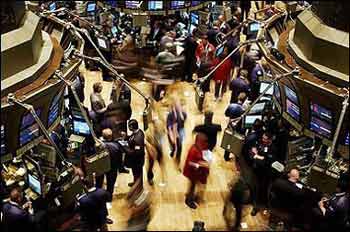|
World oil prices soar to record highs
(Agencies)
Updated: 2004-06-02 10:42
World oil prices rocketed by two dollars a barrel, setting a new record in New York on fears terrorists may hit supplies from Saudi Arabia, the world's biggest exporter.

Crude oil futures surged to an all-time high in New York at 42 dollars a barrel, before settling back to 41.80 dollars at 1511 GMT, following a deadly weekend attack on an oil installation in Saudi Arabia. [AFP/File] |
Worries about the threat of further violence in the oil-rich kingdom intensified after a weekend attack on foreign workers there, while efforts by OPEC producers to calm the market fell on deaf ears.
New York's light sweet crude contract for delivery in July soared to 42 dollars a barrel in early deals, the highest level in the 21-year history of the contract.
Prices later stood at 41.80 dollars, up 1.92 dollars a barrel from Friday's close.
In London the price of benchmark Brent North Sea crude oil for July delivery jumped by 2.08 dollars to 38.68 dollars in late afternoon trading.
Both markets had been closed on Monday for a public holiday.
Prices gushed higher after 22 people, including 19 foreigners, were killed in a weekend attack and hostage taking at oil company offices and a housing complex in the eastern Saudi city of Al-Khobar.
"It is clear that tactics have changed: terrorists have gone from attacking military targets to civilian targets, clearly trying to disrupt Saudi production, which would be critical not only to the Saudi economy but the global economy," said Investec Securities analyst Bruce Evers.
"If they suddenly start to attack oil installations, we are going to be in serious trouble. Obviously the oil installations are very heavily guarded but it does not mean that they won't try to attack them," he added.
The price surge came despite expectations that OPEC producers meeting in Beirut this week will agree to raise the cartel's output quota of 23.5 million barrels per day (bpd) in response to record high prices.
OPEC has reached "near consensus" to raise its crude oil production, Qatari Energy Minister Abdullah Bin Hamad al-Attiya told AFP in the Lebanese capital ahead of the cartel's formal meeting on Thursday.
He said the Organization of Petroleum Exporting Countries would do "everything it can" to calm the market.
Saudi Oil Minister Ali al-Naimi told reporters on his arrival in Beirut: "OPEC will do its best to make the fundamentals right."
The grouping is already believed to be pumping at least two million barrels per day above its official ceiling.
The attack in Saudi Arabia came less than a month after five Western engineers, including two Britons, were killed by gunmen who went on a shooting spree in the Red Sea port of Yanbu.
Saudi Arabia, by far the largest producer within 11-member OPEC, says it is currently producing some nine million barrels a day. It also has the largest spare production capacity within the grouping.
US Secretary of State Colin Powell expressed "confidence in the ability of the Saudi Arabians to continue to provide a secure flow of oil products."
But analysts were sceptical about whether the kingdom could open up the taps again quickly and significantly.
"Saudi might physically increase production a bit but it could take time," said Evers.
"They say they can increase production to 10.5 million barrels a day within a week but it is very unlikely. They would need 90 days or so."
Even if OPEC does supply more crude, experts warned prices were likely to remain high because of worries about instability in the Middle East and unbridled consumption in the United States.
"Extra crude oil production is urgently required if severe supply shortfalls are not to materialise by the fourth quarter," Barclays Capital analysts said.
The market impact of a likely quota increase from OPEC this week "has probably now been reduced and the floor for crude oil prices moved up another few dollars at least," they told clients.
|